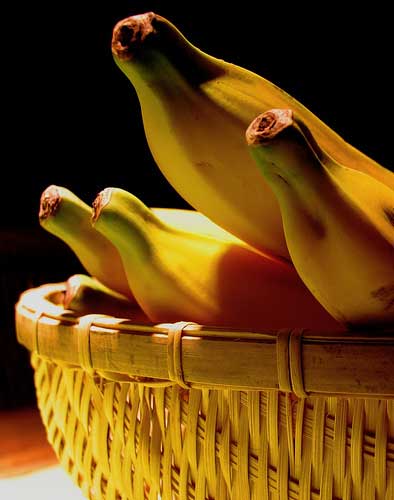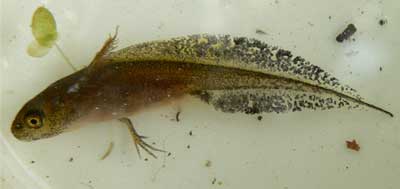Giving conservation a bad name
- Complaining about the Mainland - 17th August, 2024
- New island designation – is it just greenwash? - 26th April, 2024
- Police and Crime Commissioners – a solution or a problem? - 21st April, 2024
Remember the Euro-banana? Every tabloid in the land screamed rage at Brussels for the unimaginable insult to that very British icon, the curved banana. Although it turned out to be not really much to do with Brussels in the end, you still won’t have to go far to find some cantankerous old Euro-skeptic who will curse Europe for the loss of bendy bananas – the rows of such bananas hanging in every greengrocers in the land notwithstanding.

A similar bit of euro-lore is the plight of the poor put-upon householder, harried at every turn by officious euro-nonsense. Quietly going about their business, hard-working families are prevented from legitimate pursuits by crazy European regulations that put the welfare of wasps and newts above humans. Or do they?Take for example the case of John and Margie Histed, and their 300-year-old six bedroomed home Grade-II listed house in 10 acres of land at Dauntsey, Wiltshire. Their house flooded last summer and they’ve been living in a caravan ever since. They’ve asked the Environment Agency to clear the nearby ditch to stop it flooding again, but the Agency quite properly won’t do so until they know whether or not there are Great Crested Newts – European Protected Animals – living there. They can’t do that until this summer, so meanwhile the householders are living in fear of another flood.

It’s a complex problem. On the face of it, the tale is a gift to sub-editors; ‘euro-bureaucracy gone mad’. Stories in many papers have predictable comments after them:
Whatever common sense might be left in this country is clearly outweighed by the force of the Brussels apparatchiks. Of course European protected newts are more important than British people’s homes. – Peter Haldane, London (This is London)
Which prize peon brought this about, what a waste of money resources and time for a colony of ONE newt? We need to get real and move on from such idiots. – Mcb, Tenerife (Daily Mail)
I’d be so angry that I would be putting bleach into that wretched ditch every day, purely in order to keep the water pure, you understand. If the government is so worried about newts, then let them breed on public land. An Englishman’s home jolly well should be his castle, and the government and all the other public busybodies would do well to remember that. – squarepeg (Daily Telegraph)
Worrying sentiments, even if meant in jest. But who’s at fault here? Perhaps, one might suggest, the wealthy Histeds could have afforded to survey their property before. Well, as the land only flooded last summer, they’ve had no chance to. Maybe, then, they should have been aware of the flood risk and taken precautions? It turns out that the land has never flooded before. Hang on, never flooded before? And now it’s been subject to two floods of more than a metre in less than a year? What’s that all about then? Well, the missing piece of the jigsaw is the reason for the ditch: it’s a drainage ditch from the nearby M4. A glance at Google Maps gives a likely candidate – we can’t be sure if this is actually the house, but it’s got to be near there. The motorway is right on top of it. Are the newts to blame for this impasse? Hardly – it seems likely they’ve been here for centuries. The house, too has, peacefully co-existed with its amphibian neighbours for at least 300 years. The householders seem to have done all they could to avoid trouble – and yet trouble has come their way. What about these mythical eurocrats? Can’t we blame them? Well no, not really. Newts have been protected by British domestic law longer than Europe has been involved, so we managed that one all by ourselves. The Ranger suggests that the real villain in this scenario is the motorway. Until this swathe cut the Wiltshire village of Dauntsey in two in 1971, humans and newts managed to get along. Perhaps this kind of minor crisis is simply another part of the price we must pay for the convenience of driving such mega-highways through the countryside. Sadly, instead of reflection of the wisdom of paying such a price, it seems to have generated little more than some lacklustre ammunition for whingers to throw at the newts, the ‘conservationists’, the government, Europe – anyone but ourselves, driving in ignorance along the M4.

My smooth newts were back in the pond at the beginning of February – quite a bit colder than 5 degrees! But I don’t think I have Great Cresteds, which obviously prefer balmier waters.
Interestingly, consultants Ecosulis say this:
Surely now is the time to check for newts – they will be in the water breeding. If they are checked in the summer the tiny tadpoles and efts will be more vulnerable to disturbance. Why didn’t they clear out the ditch in the winter when the newts hibernate out of water?